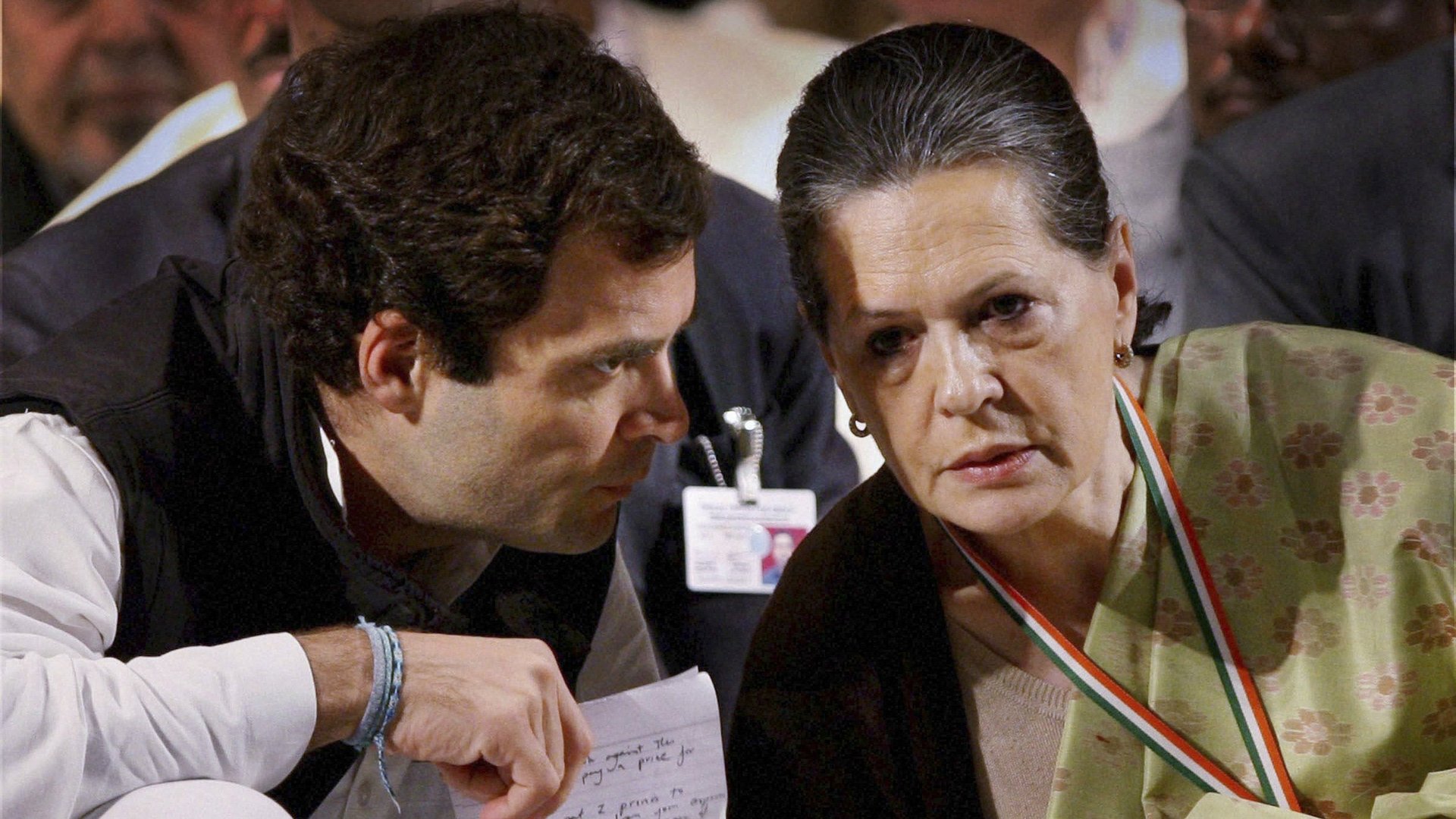What Rahul Gandhi forgot to say: He and his family are a part of the problem
Rahul Gandhi’s speech before Congress party faithful today in the ancient city of Jaipur drew a standing ovation and reverberated around the world. He said nothing short of a complete transformation and decentralization of India’s government will do.


Rahul Gandhi’s speech before Congress party faithful today in the ancient city of Jaipur drew a standing ovation and reverberated around the world. He said nothing short of a complete transformation and decentralization of India’s government will do.
The reality: He’s a product and pillar of this system, too.
In his rhetoric, part idealistic and part naïve, Gandhi weaved in personal anecdotes and talked about an overhaul as though he and his party aren’t a part of the problem.
Speaking in English and Hindi, Gandhi described power as being “grossly centralized in our country” and lamented that “we only empower people at the top of a system,” even as he assumed the second position in the Congress party, with only his mother as his boss. (The Gandhi family is not related to independence activist Mahatma Gandhi; India’s first prime minister was Rahul Gandhi’s great-grandfather, Jawaharlal Nehru, an office his father Rajiv and grandmother Indira also held.)
Conveniently setting aside the fact that he is one of the most inaccessible youth politicians in the country today, the 42-year-old Gandhi asked why the youth of India was angry and suggested that they are alienated since the powerful drive around in cars with red beacons. Even as Gandhi emphasized greater outreach and transparency, it is noteworthy that he has no direct means of communication and engagement with the youth whom he seeks to represent, let alone a social media footprint.
Among his more laughable lines: “A young and impatient India is demanding a greater voice, and let me tell you they will not watch silently.” But it is worth asking where he was two weeks ago, missing in action as youth-led protests rocked Delhi and demanded an end to violence against women. The young men and women implored him to come and talk to them but to no avail.
Another irony: “The voices of a billion Indians are today telling us that they want a greater say in government, in politics and in administration. They are telling us that the course of their lives cannot be decided by a handful of people behind closed doors who are not fully accountable to them.” And yet a quick glance at the data will show that Gandhi’s own party is the biggest purveyor of dynastic politics in the country with all 11 members of Parliament in the Congress Party under 35 years of age coming from political dynasties. In this context, his claim about political development and creating charismatic leaders rings hollow.
Eight years into politics, no one knows where Gandhi stands on the key policy and political issues plaguing India. Even when opportunities have presented themselves on a platter—the youthful anti-corruption movement in 2011 and the more recent Delhi rape protests—his controlled interventions have oscillated between the insipid and the uninspiring.
Gandhi’s colleagues might have given him a standing ovation for his speech. Young India, however, wasn’t very impressed. To win this demographic over, Rahul Gandhi quite simply must walk the distance between promise and delivery.